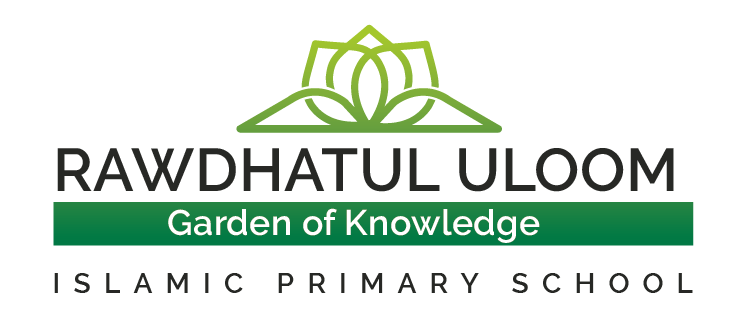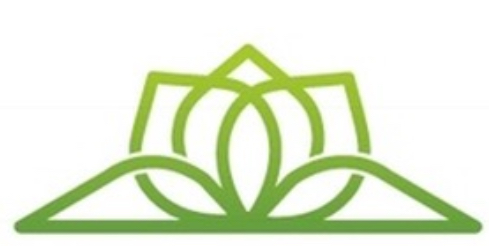Contents
- INTRODUCTION
- DEVELOPMENT AIMS OF THE POLICY
- PLANNING
- CURRICULUM ORGANISATION
- ASSESSMENT
- CHILDREN WITH EAL NEEDS
- MONITORING AND REVIEWING
- ADMISSIONS
- APPROVAL
Introduction
Rawdhatul Uloom Islamic Primary School aims to create a caring environment that promotes learning and personal growth as part of the development of the Islamic personality. This is in accordance to the statement of the Prophet Muhammad (SAW):
“I have been sent only for the purpose of perfecting good morals”. (Al-Muwatta)
At Rawdhatul Uloom every child matters and through our high standards and expectations, we want to help children to achieve their true potential. This is reflected within our broad and balanced curriculum. The school aims to reinforce the commitment to providing the highest quality of learning and teaching and actively promoting fundamental British values of democracy, the rule of law, individual liberty and mutual respect and tolerance for those with different faiths and beliefs.
Development Aims of the Policy
Our school curriculum encompasses planned activities from the National curriculum (2014) and other extra-curricular activities to promote learning, personal growth and development and enriching the experience of children.
Our values and ethos are reflected through our curriculum in which children learn from the way they are treated and expected to behave.
The curriculum, whilst paying due regard to achieving high standards in maths, English and science is also broad, challenging and stimulating. The curriculum meets statutory requirements of the new national curriculum and is enhanced by the provision of Islamic studies for all pupils. There is a personal development programme which includes PSHE. The curriculum provides pupils with opportunities to learn, achieve their full potential and grow into positive and responsible people, who can work and co-operate with others while developing knowledge and skills. The school provides all pupils with equal opportunity and access to teaching, learning and all other school resources.
Thinking and Creativity
- To enable children to be creative and to develop their own thinking
- To enable all children to learn and develop their skills to the best of their ability
Attitude to Learning
- To promote a positive attitude towards learning, so that children enjoy coming to school, and acquire a solid basis for lifelong learning
- To develop high expectations of an individual’s performance
Islamic Studies
The Islamic Studies curriculum is organised into several areas of study. Some of these are not relevant to all ages. They are as follows:-
- Tafseer al Qur’an, explanation of the Qur’an,
- Aadaabul Muaasharaat, etiquettes of Social Life,
- Fiqh, Jurisprudence, Seerah, life of the prophet
- Ilm-ul Aqaa-id and Ilm-at-Tawheed, the beliefs of Islam,
- Akhlaq, general behaviour, Hadeeth, traditions of the prophet
- To develop a love for the ‘ibadaat as part of love for Allah, particularly Salah, in accordance to the statement of the Prophet Muhammad (SAW):
“The first matter that the slave will be brought to account for on the Day of Judgement is the prayer. If it is sound, then the rest of his deeds will be sound, and if it is bad, then the rest of his deeds will be bad.” (Al-Tabarani)
Community and Responsibilities
- To teach children about their developing world, including how their environment and society have changed over time
- To enable children to be positive citizens in society
- To enable children to be outstanding role models in society and develop confident personalities
- To demonstrate a caring, respectful attitude towards each other within the community
- To encourage the tolerance of opinions and beliefs of others
- To promote partnership between the child, the parent, the teacher and the community
PLANNING
Our curriculum is planned in three stages. A long term plan for each year is agreed. This comprises of a number of topics that will be taught each term. Our long term plans are reviewed during the end of each academic year.
Secondly, medium-term plans give an idea on the objectives and strategies used when teaching each topic. We use units from our schemes of work as the basis for our medium-term plans, as they contain much of the information needed for this level of planning. These documents along with adopted schemes of work provide guidance for our medium term planning.
Thirdly, short-term plans which teachers write on a weekly or daily basis. These are used to set out the learning objectives for each session, and to identify what resources and activities are going to be used in the lesson.
CURRICULUM ORGANISATION
At Key Stage 1 and 2, the range of subjects taught includes English, Maths, Science, History, Geography, Computing, PSHE and Islamic Studies. Again, this will be in line with the published National Curriculum objectives.
At Key Stage 1 and 2, the core subjects of Literacy, Numeracy, Science and Computing will be taught as separate subjects.
English is applied in all subject areas and enables children to articulate their understanding and learn with enthusiasm and independence. Applying English across the curriculum also aids EAL children.
Personal and Social Health Education and is taught as a separate subject. This is also applied cross-curricular and is a key focus through the Islamic Studies curriculum.
Literacy, Numeracy and Computing are skills that run through the whole of the curriculum. Computing is applied across the curriculum as well as in specific Computing lessons.
Islamic Studies is a core subject in our curriculum and helps develop strong Islamic personalities.
ASSESSMENT
1. Development of thinking on key concepts by responses to questions posed by:-
a) Teachers
b) Other pupils
c) Other people’s lives – real, historical, fictional
2. All content of teaching and resources used in all curriculum areas, is to be assessed termly.
3. Content of written work and expression in visual areas of the curriculum as a reflection of pupils awareness of the multi-cultural nature of society.
4. SATS, NFER, White Rose, PlanBee and Scholastic tests are used to assess the children’s progress. The NFER Results tracker and White Rose results tracker are used for centralised record keeping for all our pupils. It tells us much more about which concepts our pupils are struggling with and is good for the teachers to do their planning effectively.
5. NFER comprehensively tracks pupil’s progress, providing a National Curriculum level for each unit and end of term Assessment. It helps to analyse the performance of pupils against the strands of the Framework, highlighting those strands which need further reinforcement. Further it provides evidence to assist target settings, predict a pupil’s future performance and help each pupil to review his or her own progress in a structured manner.
6. In year 2 and 6, the pupils will sit the national tests (SATS), to help analyse the pupil’s performance in relation to national standards. This will help inform the Head teacher and staff of progress made by the children or the lack of it, which In turn will affect decision making in terms of curriculum and its resources.
7. Level and sub-level information can be used to investigate, monitor and report on the performance of each pupil:
- Monitoring each pupil’s progress from term to term (summative assessment)
- Diagnosing each pupil’s strengths and weaknesses against the assessment focuses for reading and writing (diagnostic assessment).
- Informing your own assessment for learning strategy and supporting your lesson planning (formative assessment).
CHILDREN WITH EAL NEEDS (ENGLISH as an additional language)(to be read in counjunction with EAL policy)
“The starting point must lie in the linguistic and cultural knowledge already possessed by the pupil if a proper continuity is to be maintained between the language of the home and the language of schooling.”
E.E.C. Languages Seminar 1984.
Principles:
- Research shows that children’s learning is accelerated if they can use their first language as well as English in understanding new concepts.
- An individual’s sense of self-worth is connected to the language of their home and family.
- It is easier to express emotions and feelings in first language.
At Rawdhatul Uloom Islamic Primary School the curriculum will be taught across the key stages and in ways that enable each child to access it equally. Each child regardless of ethnic group, age, disability, special educational needs and gender will have access to this curriculum. It is our aim that a wide range of activities be planned and organised that will stimulate our pupils’ interests, instil a love of learning and make children aware of the contributions made to the curriculum by role models from diverse cultures.
Everyone in the school community will take great care to ensure they do not create an intimidating, hostile, degrading, humiliating, or offensive environment for others at the School. Therefore everyone must ensure that their words or actions will not give rise to an environment in which people will experience – or could reasonably fear – harassment, intimidation, isolation, verbal abuse or violence, particularly because of their:
- Ethnicity or race
- Religion and belief- including lack of religion and belief
- Sexuality – heterosexual, bisexual, lesbian, gay
- Gender
- Disability
- Trans status
- Age
- Civil partnership and marriage
- Pregnancy and maternity.
If any member of the school community contravenes this guidance, the School reserves the right to take appropriate action, relevant to the contravention in question and subject to the powers at the school’s disposal.
Rawdhatul Uloom is an inclusive school. We are committed to making appropriate provision of teaching and resources for pupils for whom English is an additional language. We recognise and address the specific needs of all pupils. The school will identify individual pupil’s needs, recognise the skills they bring to school and ensure equality of access to the curriculum. Please refer to our EAL Policy for complete guidance on EAL.
MONITORING AND REVIEWING
The Head teacher is responsible for reviewing and monitoring the curriculum. Planning and coverage of the curriculum is reviewed and updated regularly.
The Head teacher is responsible for the day to day organisation of the curriculum. The Head teacher monitors the weekly lesson plans for all teachers, ensuring that all classes are taught the full requirements of the Curriculum, and that all lessons have appropriate learning objectives.
The Head teacher monitors the way subjects are taught throughout the school. He examines long-term and medium-term planning, and ensures that appropriate teaching strategies are used.

